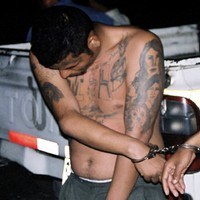In Honduras, the Central American country with the highest homicide rate in the world, the two largest and most dangerous street gangs declared a truce Tuesday.
The agreement between MS-13 and Barrio 18 is modeled after one that took effect last year between the same gangs in El Salvador.
“The success of the truce in El Salvador, which has reduced homicide levels from 14 per day to five per day since it was negotiated in March 2012, was certainly an important impetus for Honduras to test a similar path,” Rachel Schwartz, program associate at the Inter-American Dialogue, told Trend Lines in an email interview. But Schwartz added that several key differences “could prevent the Honduran truce from having the dramatic impact seen in El Salvador.”

